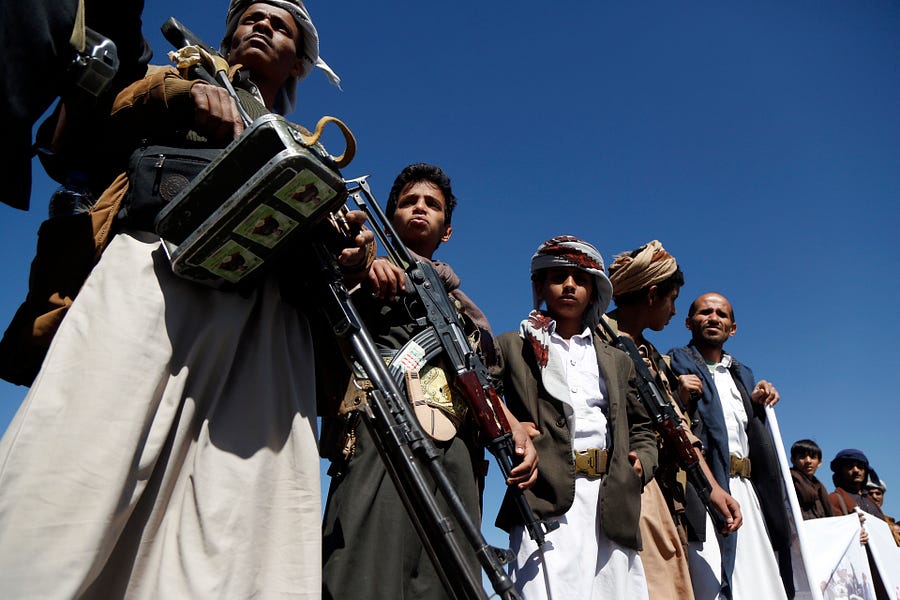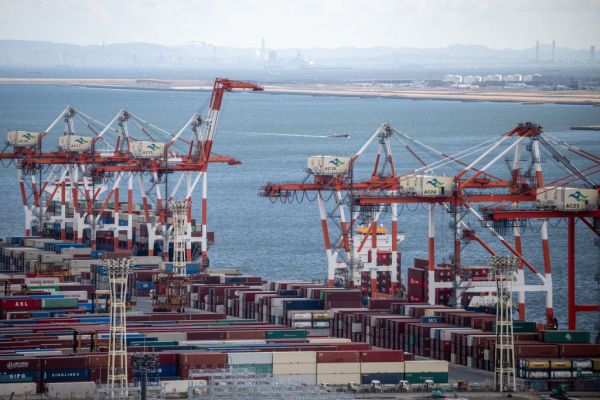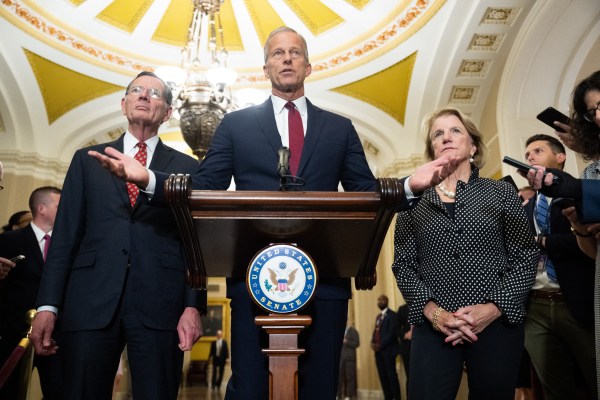The Biden administration has announced an end for U.S. support to the Kingdom of Saudi Arabia’s operations in Yemen, just as it’s also reversing a Trump administration designation of one of the main warring parties—the Houthis—as a terrorist organization. “This war has to end,” the new president intoned. It is a “humanitarian and strategic catastrophe.” Indeed it is; but that has little to do with either U.S. support or with the designation of the Houthis as terrorists. Sadly for the people of Yemen, the Biden move is little more than foreign policy kabuki, with no intention of addressing the underlying problem of Yemenis dying. Rather, it represents yet another manipulation of the small Red Sea nation as a pawn in the American tactical game in the Middle East.
First, Yemen: A messy conflict has grown out of a messy country, built on a messy post-Cold War unification of North and South Yemen. While it’s tempting to blame one sect or another, one party or another, one meddler or another, there is no reason to choose. There is sufficient blame to go around. The country’s bankrupt leadership—reviled for many of the same reasons most governments in the Arab world are unpopular—ensured that the spoils of leadership, such as they are, remained in the hands of tribal cronies. And in the breezes of the Arab Spring, an ousted leader (Ali Abdullah Saleh) decided to team up with an aggrieved minority (the Houthis) to upend their president, Abdrabbuh Mansur Hadi. Hadi, in turn, looked to the government of Saudi Arabia for relief in 2015. Thus began the latest chapter of conflict.
A desperately poor nation to start, shortchanged by the petroleum gods, Yemen’s troubles are a potent mix of religious, political, economic and regional battles that have never been addressed, either by outside parties or leaders at home. Instead, the many fissures that cleave the country have become opportunities for outsiders to further their own great game. In the 1960s, the Egyptians were there, to their regret. The Soviets got little joy out of their proxies in southern Yemen. And Americans will remember the bombing of the USS Cole from Yemen by al-Qaeda in 2000, a harbinger of the 9/11 attacks. Then there was Anwar al-Awlaki, the American-born charismatic Salafi preacher and a key leader within al-Qaeda’s Yemen branch who still inspires attacks. He’s been dead since 2011, and al-Qaeda in the Arabian Peninsula’s leader was recently captured, but the group still makes its home in the nation’s rugged southwest. ISIS is there too.
Then there are the Houthis, Zaydi Shiites (a different sect than that which rules Iran) who now control the capital of Sanaa plus nearly 80 percent of Yemen’s largely Sunni population. They are armed and managed by Iran’s Revolutionary Guard Corps. For Iran, Yemen’s Shiites are no humanitarian cause; they represent an opportunity to attack Saudi Arabia, early and often. There are also the Saudis, who became involved at President Hadi’s request, with support from the United States. Former President Barack Obama was hoping to propitiate Riyadh in return for support for the Iran deal he was eager to ink.
As if this potent stew was not enough for Yemen, new proxy battles between various Gulf powers began to play out in recent years. Like the Americans, the United Arab Emirates stepped into the fight in Yemen to help the hapless Saudis. But a new rift between Saudi Arabia and the UAE on one side and Qatar on the other meant Emirati forces maneuvered to limit Qatari—and by extension, Muslim Brotherhood—influence on the ground. Oh, and Oman began to stick its nose into the political muddle as well, irritated that its sphere of influence in Yemen’s East was being usurped by Saudi and Emirati trained proxies.
Roughly, this is the situation as of February 2021. There is a new, internationally recognized unity (of sorts) government. The Houthis still control Sanaa and substantial territory around it, choking aid, denying food and medicine where they can. There is a United Nations envoy, Martin Griffiths. There is now a new American special envoy, Tim Lenderking. And there is, theoretically, a new Biden Yemen policy. It will not work.
Here’s why: Biden’s policy is, at least in intention, the opposite of Trump’s Yemen policy. In reality, it is much the same: A set of demands for power sharing with no leverage and no teeth. In the world of black and white that the United States has become, anything Donald Trump embraced is bad, etc. Thus, arms sales to Saudi Arabia and the United Arab Emirates are on hold. The United States is no longer supporting most Saudi operations in Yemen (never mind these largely ended in 2018). The Houthis are nominally no longer called terrorists. And Iran is now the prism through which Biden national security policy will play out. If this looks feckless, there is a reason.
Unfortunately, the Saudis do not need American assistance to continue to muck up their efforts to oust the Iranians from Yemen; they have been trying to get out of Yemen for the last two years and can’t even do that. Over those years, the United States has done little more for the Saudis than try to ensure that they stopped, whether by intention or incompetence, bombing school buses full of kids. The Houthis, meanwhile, have shown no inclination to allow the aid they were hoarding, taxing, and blocking to get to the millions of Yemenis in need. (This is why renewing aid will not help most Yemenis.) Nor has the Biden administration hinted how they think their plan will “win the war,” solve the humanitarian crisis, or counter the threats to U.S. national security presented by al-Qaeda and ISIS.
Then there’s the thorny question of Houthi terrorism, as, despite no longer being labeled terrorists, they are continuing their Iran-sponsored terror campaign. Embarrassingly, Biden’s new team at the State Department was forced to denounce four Houthi civilian-directed armed drone attacks within hours of the decision to remove them from the terror list.
If this nightmarish tale stirs sympathy for the various envoys and the downtrodden Yemeni people, it’s no surprise. But none of that sympathy has translated into a serious Yemen policy driven by anything other than virtue signaling (Saudi Arabia’s leaders are persona non grata with the Democratic party), Iran signaling (Iran being more grata) in a desperate effort to restart the JCPOA, and tactical maneuvering to appear to be addressing a humanitarian crisis without the commitment of any serious foreign policy capital.
How will it end? Much as it began. While the new government is what passes for a ray of hope—at least they’re not killing each other at this very moment—its members are not in the capital, and do not control most of the country. So there is a real question how much can be done. Meanwhile, Iran has little incentive to relinquish an effective proxy government in Sanaa. The United States has relied on partners for intelligence against Salafi groups, but as relations with the Sunni Arabs inevitably deteriorate over Biden’s emphasis on Iran, that intelligence is also bound to evanesce. Will this help the people of Yemen? Not a chance.






Please note that we at The Dispatch hold ourselves, our work, and our commenters to a higher standard than other places on the internet. We welcome comments that foster genuine debate or discussion—including comments critical of us or our work—but responses that include ad hominem attacks on fellow Dispatch members or are intended to stoke fear and anger may be moderated.
With your membership, you only have the ability to comment on The Morning Dispatch articles. Consider upgrading to join the conversation everywhere.